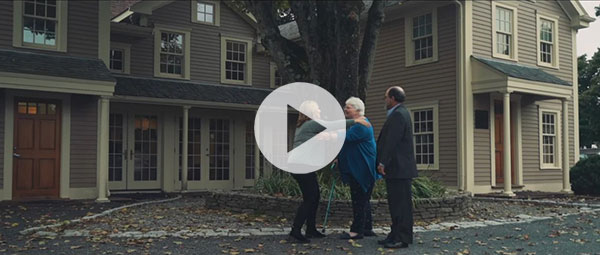|
September 2022 |
|
|
|
Planning For Long-Term Care:
|
|
Both Medicare and Medicaid can assist you with your individual long-term care plan. While the two programs sound similar, there are important differences to consider.
Let’s start with a brief definition of each program. First, it’s true, both programs provide medical care. However, Medicare is an entitlement program; meaning that everyone who reaches the age of 65 and is eligible to receive benefits from Social Security can also receive Medicare. In contrast, Medicaid is a public assistance program, meaning it is designed to help people with limited income and assets to pay for medical care. Recipients of Medicaid assistance must meet certain income and asset eligibility guidelines.
Now, let’s look at some of the fundamental differences between the programs.
WHO RUNS EACH PROGRAM?
Medicare is completely run by the federal government, whereas Medicaid is run as a joint, federal-state program. A few states use different names for their Medicaid programs. For example, Medi-Cal in California and MassHealth in Massachusetts.
|
|
|
Typically, the federal government pays for approximately one-half of a state’s Medicaid Program, with the state paying the balance. The eligibility rules will differ from one state to the next. However, in order for the state to receive money from the federal government, the program must adhere to certain federal guidelines.
LONG-TERM CARE COVERAGE
Medicare, by and large, does not cover long-term nursing home care. For example, Medicare Part A will only cover up to 100 days in a skilled nursing facility for a particular illness, and only after the patient has spent at least three days in a hospital. And, from day 21 to day 100, the individual at the skilled nursing facility must make a copayment of $167.50 per day. Few people actually receive Medicare coverage for the full 100 days, in part because of the copay, and in part, because restrictions and conditions for coverage are quite stringent.
In contrast, Medicaid covers long-term nursing home care for people who meet its income and asset limits. It does not matter whether you need assistance for one hundred days, one year, or five years—Medicaid will pay for the care as long as the recipient is eligible. Given the high cost of nursing home care, the dearth of affordable alternatives, and the restrictions inherent in Medicare coverage, Medicaid is now the single largest payer of nursing home stays in the United States.
DO I QUALIFY FOR MEDICAID?
If your income and assets are less than your state’s guidelines, you are already eligible for assistance. However, if your income and assets exceed state limits, you will have to take the appropriate steps to become eligible. An experienced elder law attorney will be able to determine the best way for you to secure your Medicaid benefits.
But be careful! Being eligible is not as simple as giving your “stuff ” away a few weeks before entering a nursing home, expecting Medicaid to pay for your stay. Instead, when you apply for Medicaid, any gifts or transfers of assets made within five years of the date of application will be subject to penalties that delay your benefits. This is known as the look-back period, and the penalty period is determined by dividing the amount transferred by what Medicaid determines to be the average private pay cost of a nursing home in your state. A skilled elder law attorney will be able to guide you through the planning and application process so you can receive your Medicaid assistance as expeditiously as possible.
In short, while Medicare can help you afford a short-term stay in a nursing home, Medicaid will be able to pay for your long-term care, if you are eligible. Through early and proper planning, you can obtain assistance from Medicaid to pay for your nursing home care and protect your hard-earned assets in the process. |
The Rising Costs of Medicaid and
|
|
|
|
Did you know that in the United States, the median monthly cost of a semi-private room in a nursing home is currently more than $7,900? And the cost of a private room exceeds $9,000 per month! Plus, depending on where you live, costs can even be considerably higher.
Making matters worse, costs rise according to the level of care needed and they are expected to continue increasing dramatically in the future. (See the current costs for home care, adult day care, assisted living, and nursing home care in your area.)
Despite the exorbitant costs of long-term care, nearly 70 percent of those over the age of 65 will require long-term care at some point in their lives, and 20 percent will need long-term care for five years or more. Given this, it’s easy to see why many families exhaust their life savings within a few years of a family member entering a nursing home, and why more than half of all nursing home stays are now funded by Medicaid.
But planning for your loved one’s future care isn’t always easy. If they have already moved into a nursing home, or must enter one in the very near future, and you have been informed that they own too many assets to qualify for assistance from Medicaid then your family is in a Medicaid Crisis situation.
Such a situation is indeed a financial crisis for all but the wealthiest families. If you or a loved one is facing a Medicaid Crisis, try to remain calm. Much of the information we hear about Medicaid from friends, relatives, nursing home staff, caregivers, and many others is outdated or incorrect.
There is hope! A qualified elder law attorney can help you by assessing your unique case, strategizing the options that are best for you and your family, and obtaining assistance from Medicaid. It is possible to get Medicaid assistance even if you are already in a nursing home or will need to enter one next month, next week, or even tomorrow. Even if you have applied for Medicaid assistance in the past but were rejected, it is entirely possible that a qualified elder law attorney can still obtain the financial assistance you need.
You’ve worked too hard to lose your life savings to the nursing home. Let an experienced elder law attorney help you secure the financial assistance you need and deserve. |
|
Upcoming Events |
|
How to Choose Who Will Fill a Role in Your Estate PlanOngoing The Key Estate Planning Things
|
A Personal Note From Tiffany |
|
|
We've found over the years that providing our clients with additional resources and tips related to our services can be very helpful. We are now starting to create an online resource library to help you explore and research what’s important to you. We just launched our first one this month on charitable giving.
Whether you give $100 or $10,000 (or more) for charitable causes, we want to be there to help you strategize what's right for you. If you'd like some tips and resources, here's a short 10-minute video that will help you be more purposeful with your giving. |
|
Finally, here’s a link to a special charitable giving landing page we set up with helpful resources: https://www.oconnelllawgroup.com/charitable-giving/. We’ll continue adding resources on this page, so come back and check it out from time to time.
As always, thank you for taking the time to read and reflect.
Sending you all a remote hug, |
 |
Finally, an Estate Planning Guide for Everyone! |
|
Many books about estate planning are long, complicated, and written in a way that’s hard to understand. Not this one!
Do You Have a Plan? How to Avoid Leaving a Mess (A Guide to Estate Planning) is written by estate planning and Certified Elder Law Attorney Tiffany A. O’Connell. The book is a quick and enjoyable read, thanks in part to wonderful illustrations by Joy Murphy. The book can also be used as a reference guide to easily review important planning concepts in the future. |
|
|
|
|
3 Eliot Street | Natick, MA 01760 |









